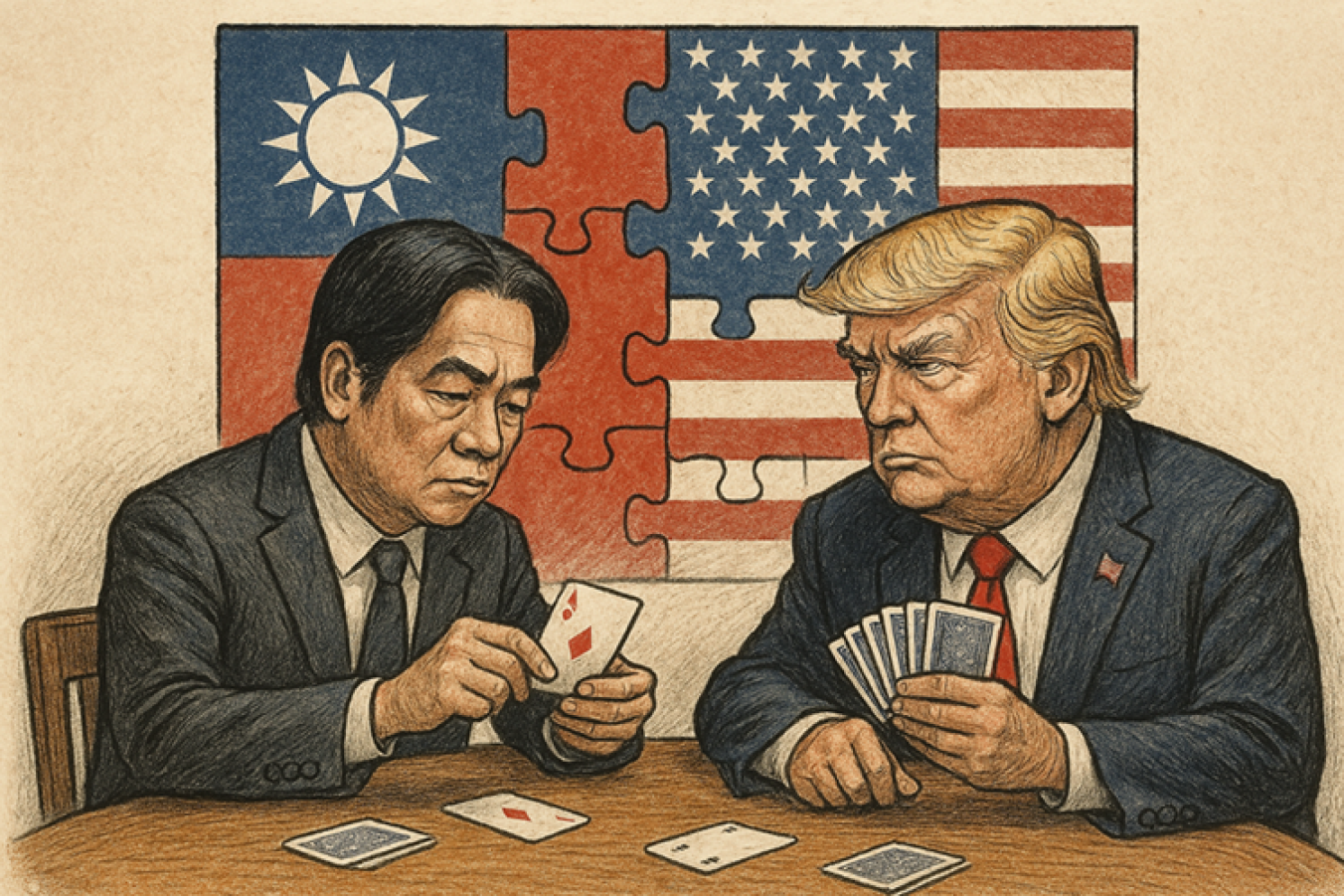
President Lai Reveals His Cards, Raising Fears That Taiwan Could Be Divided By Trump
United Daily News Editorial, April 9, 2025
President Lai Ching-te has announced plans to begin negotiations with the United States for "zero tariffs" and to form a "Team Taiwan for Investing in America." With over fifty countries lining up to negotiate with the United States, the White House has confirmed that Taiwan has initiated contact. Some legislators from the ruling party have even suggested sending former President Tsai Ing-wen or Vice President Hsiao Bi-khim to lead the negotiations. As the stock market crashes, order cancelations, factory closures, unpaid leave, and layoffs loom, if our delegation sits at the table, will they genuinely protect core national interests?
The BBC questioned whether the Taiwan Semiconductor Manufacturing Company's (TSMC) additional NT$3 trillion (about US$92.6 billion) investment in the United States was worthwhile, considering Taiwan now faces a 32 percent tariff. What bargaining chips does Taiwan still have to negotiate with U.S. President Donald Trump? Strictly speaking, the delegation President Lai is sending is more like a "tribute mission" than a negotiation team. His five-point strategy once again reveals the absurd logic of "giving away bargaining chips before negotiations even begin." While supposedly aiming for zero tariffs, he has already pledged to expand Taiwanese investment in the United States, inviting all industries to follow suit. With all our cards already revealed, what leverage remains to push for zero tariffs?
Mr. Trump welcomes world leaders to negotiate but stresses they must "pay much money." Senior White House trade adviser Peter Navarro bluntly stated that lowering tariffs alone won't solve the problem, pointing out that "non-tariff cheating" is the real issue. Before demanding tariff reductions, the Lai administration must first understand what "cheating methods" the United States accuses Taiwan of. Otherwise, sacrificing domestic industries for the sake of zero tariffs could collapse Taiwan's economy—without ever fulfilling Mr. Trump's bottomless demands.
International analyses point out that "reciprocal tariffs" help create fiscal space and jobs for America. Mr. Trump is using tariff leverage to reshape the geopolitical order and extract concessions. For example, he demanded Southeast Asian countries eliminate China's origin-masking exports and urged Japan to bring car manufacturing back to Detroit. In short, "paying a lot" could take many forms beyond simple purchases. Taiwan's massive trade surplus with the United States comes mainly from semiconductor and ICT exports—items that can't simply be offset by buying American arms, agricultural goods, or natural gas. Nor are those of Mr. Trump's real goals.
TSMC's $100 billion investment in the United States has not satisfied Mr. Trump; rather, it has heightened his desire to plunder Taiwan. During his tariff announcement press conference, Mr. Trump again attacked Taiwan, saying, "Taiwan has taken all our computer chips and semiconductors." Later, Secretary of Commerce Howard Lutnick hinted that the tariff policy did not fully target semiconductors because Mr. Trump was still considering strategies to restore American dominance in chip manufacturing. Mr. Lutnick added that while the United States cannot own the entire global supply chain, it must increase domestic production in key industries for national security reasons. Citing Apple iPhones, he asked, "Why do they have to be made in Taiwan or China? Why can't they be made with robotics in America? And you know what Donald Trump has said? They're going to be made in America."
Clearly, Mr. Trump is targeting Taiwan's semiconductor industry and its automated ICT manufacturing. In fact, under Biden, Taiwanese electronics companies have already started shifting operations from China to the United States, Mexico, and Southeast Asia in response to the call for a "Democratic Supply Chain." These companies, such as Foxconn and Quanta, are professional Electronics Manufacturing Services (EMS) providers, handling everything from design to logistics—a key part of Taiwan's high-tech value chain. Mr. Trump's new tariff policies will only accelerate the relocation of production lines to the United States. In other words, Mr. Trump is in no rush to negotiate with the Lai administration—because his tariff threats are already delivering results. President Lai should be far more worried about how high tariffs will harm Taiwan's industrial structure and economic growth.
Following China and Canada, the European Union has launched the first wave of retaliatory tariffs against the United States, and countries like the United Kingdom and Germany are preparing to join. As the tariff war spreads, the global economy teeters on the edge. High-tech industries, mostly multinational, can adapt without much government help, but traditional manufacturing and agriculture, battered by the tariff tsunami, will be crushed by the recession. Tragically, President Lai revealed all his bargaining chips before negotiations even began, oblivious that the tariff war was merely the first wave of a looming economic tsunami, and the government remained entirely unprepared.
Mr. Trump is dismantling Taiwan through this tariff war, stripping away our most valuable industries and damaging our economic structure. Alarmingly, President Lai seems determined to appease Mr. Trump's greed, exposing the hollowness of his so-called "Taiwan values."
From: https://udn.com/news/story/7338/8661665
〈Back to Taiwan Weekly Newsletter〉